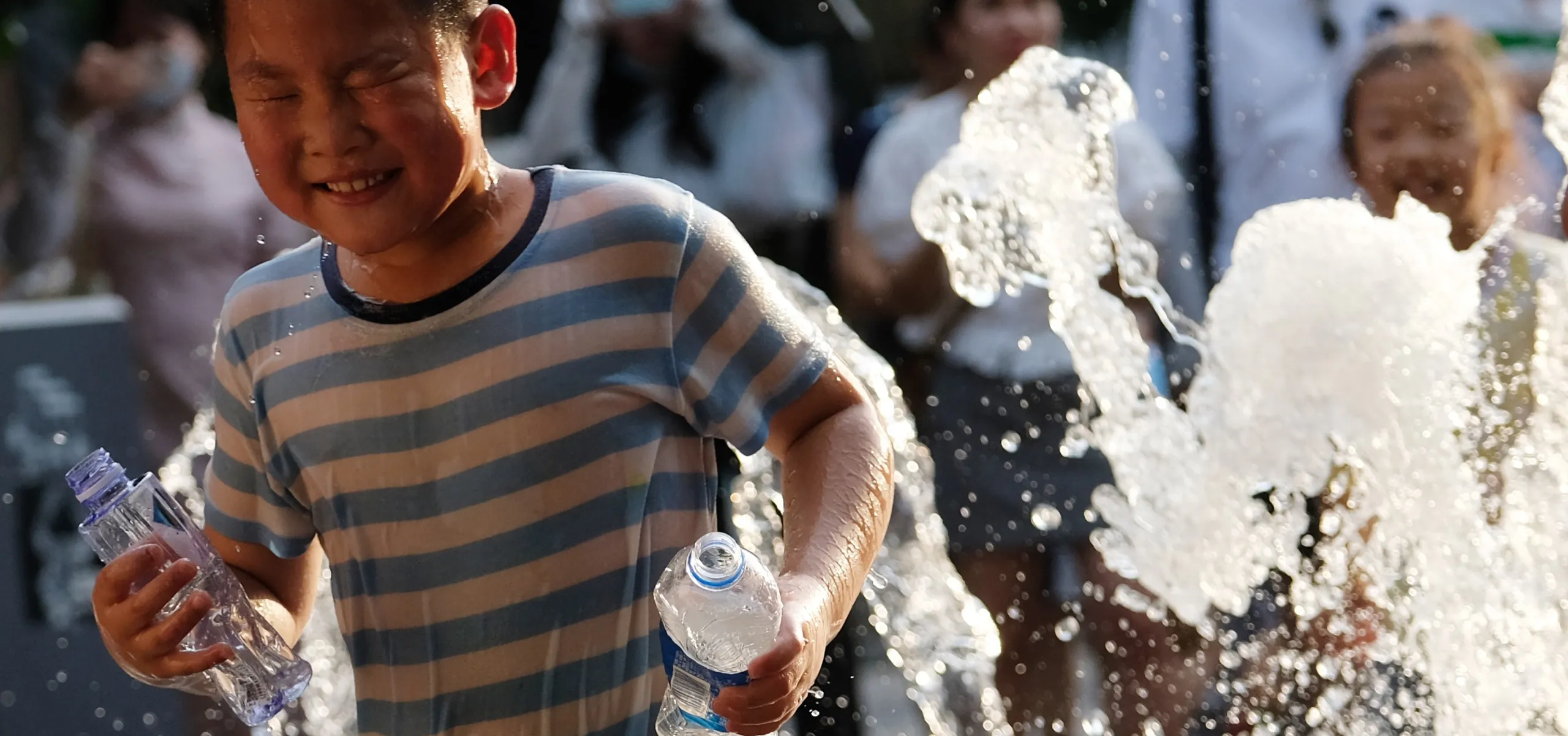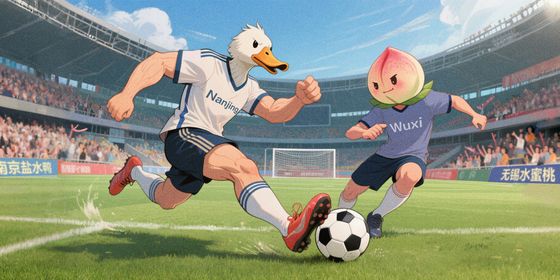Faced with extreme temperatures all over China and the world, netizens have invented new ways to complain about the heat
“End of Heat (处暑 chùshǔ),” the 14th solar term of the Chinese calendar, which falls on August 24 in 2022, might be welcome news to everyone in the Northern Hemisphere who has experienced record-breaking heat waves this summer.
With extreme temperatures climbing above 40 degrees Celsius (104 degrees Fahrenheit) in many countries, accompanied by floods, wildfires, and news of heatstroke, the effects of climate change are proving to be alarming and deadly as well as uncomfortable.
Traditionally, the Chinese calendar used the term sanfu (三伏 sānfú), also known as “dog days,” to refer to the hottest, most uncomfortable period of summer. It consists of three 10-day periods called “first fu (头伏 tóufú),” “middle fu (中伏 zhōngfú),” and “last fu (末伏 mòfú),” which occur between the solar terms “Minor Heat (小暑 xiǎoshǔ),” “Major Heat (大暑 dàshǔ),” and Chushu. This year, despite the arrival of Chushu, many parts China, especially the South, are still baking in the extremely hot weather, and partaking in heated discussion with temperature-related slang on the internet.
Apart from simply whining, “Hot hot hot, I’m dying here (热热热死了 Rè rè rèsǐ le),” netizens created various new ways to complain about the weather. With the Chinese language known for its colorful vocabulary for food, many compared themselves to a meal being cooked: “This damn weather! Lying in feels like being braised; sleeping on a bamboo mat is like being on a grill; getting out of bed is like being steamed; going outside is like being stir-fried; go swimming is like being boiled; the journey home is like being pan-fried; entering the home is like being twice-cooked. (这鬼天气,躺在床上,红烧;铺张凉席,铁板烧; 下了床后,清蒸; 出去一趟,爆炒;游了个泳,水煮;回来路上,生煎;进了家门,回锅。Zhè guǐtiānqì, tǎng zài chuáng shang, hóngshāo; pū zhāng liángxí, tiěbǎnshāo; xiàle chuáng hòu, qīngzhēng; chūqù yí tàng, bàochǎo; yóule gè yǒng, shuǐzhǔ; huílái lùshang, shēngjiān; jìnle jiāmén, huíguō.)”
Homophones are always fertile ground for new slang. During the dog days, netizens say, “People who go out in this weather are your cooked acquaintances (这天气出门多少是个老熟人 Zhè tiānqì chūmén duōshǎo shì gè lǎoshúrén),” as 熟 (shú), in Chinese can mean both “cooked” and “familiar.” Others perspiring in the heat might up the stakes: “We are more than cooked acquaintances. We are scorched people. (不只是熟人,还是焦人。Bù zhǐshì shúrén, háishì jiāorén.)” Jealous of people living in cooler cities, some say, “For the time being, I will not be friends with people living in cities below 40 degrees Celsius, because we are not cooked (40℃以下城市的同志暂时别和我做朋友,因为不熟 Sìshí dù yǐxià chéngshì de tóngzhì zànshí bié hé wǒ zuò péngyou, yīnwèi bù shú).”
With the weather uncooperative, people turn to artificial means to cool down. “I owe my life to the air conditioner (命都是空调给的 Mìng dōu shì kōngtiáo gěi de),” goes a common refrain every summer. Friends who are willing to “sacrifice their lives” to meet you outside should be cherished: "In such weather, anyone willing to come out and meet you is a lifelong friend; anyone willing to go out on a date is your true love! (这样的天气能出来见面的都是生死之交, 能出来约会的绝对都是真爱! Zhèyàng de tiānqì néng chūlái jiànmiàn de dōu shì shēngsǐ zhī jiāo, néng chūlái yuēhuì de juéduì dōu shì zhēn’ài!)”
The level of heat varies from region to region in China. Xinjiang, Chongqing, and Zhejiang were the “worst-hit heat areas (高温重灾区 gāowēn zhòngzāiqū)” this summer, and are called new “stove cities (火炉城市 huǒlú chéngshì).” This nickname used to refer to just Wuhan, Chongqing, and Nanjing, but the list as expanded so much that people are questioning if it means anything anymore: “Forty degrees Celsius isn’t even enough to get your city into the top 40 hottest cities nationwide (40度都不配进全国高温排行榜 Sìshí dù dōu bú pèi jìn quánguó gāowēn páihángbǎng).”
Poking fun at the competitiveness of everything in society, netizens have also quipped, “How can even the weather be so ‘involuted’ (连气温都这么卷了吗 Lián qìwēn dōu zhème juǎn le ma)?”
Just like how netizens made “pandemic literature” by adapting famous lines from books to Covid-19, they have compared the heat wave to the world of the Trisolarans in The Three-Body Problem by Liu Cixin. In this sci-fi trilogy, the Trisolarans live on a planet with three suns, and have the ability to dehydrate their bodies in order to deal with the parched climate. Online, people are shouting the Trisolarans’ slogan: "Dehydrate! Dehydrate! Dehydrate! (脱水!脱水!脱水!Tuōshuǐ! Tuōshuǐ! Tuōshuǐ!)”
Visual puns are another a source of amusement: just ask the residents of Hubei province who quip, “Hubei is becoming ‘North of Hu’ due to the heat (湖北都热成胡北了 Húběi dōu rèchéng húběi le),” implying that the heat has evaporated the “water” radical in their province’s name.
As the heat shows no sign of dissipating, China continues to issue a red alert for high temperatures, the most severe alert in its four-tier warning system. In these parched times, telling someone to “stay cool” is more than a generalized well-wish—it could be life-saving advice.












